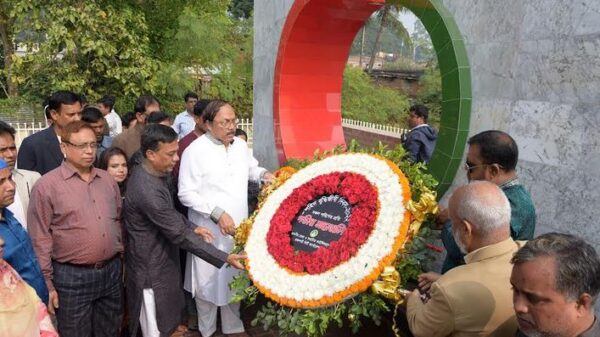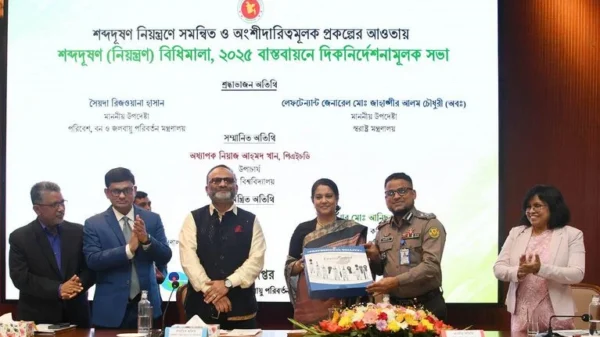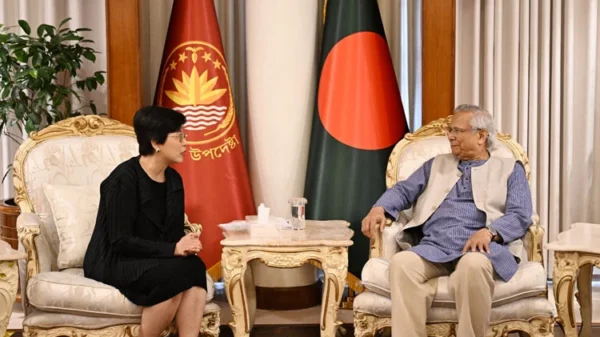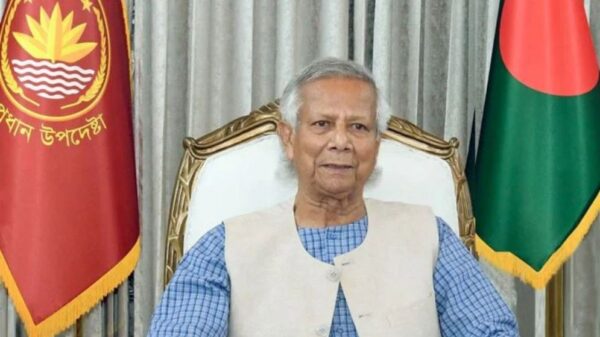-Mozidur R Biswas-
The recent proposal by the National Board of Revenue (NBR) to increase taxes on various goods and services, including air travel, cigarettes, LPG, restaurant food, and garments, has sparked the dif-ferent areas society at large followed by protests from traders and industry leaders in vari-ous sectors across the country at this critical time of socio-political scenario under which Bangla-desh is passing through.
The government has again decided to increase VAT on 43 goods and services to 15 percent along with raising taxes on items like airfares, cigarettes, medicine, detergents, and soaps – an unprece-dented move in Bangladesh in the middle of the fiscal year. Following the government’s decision to increase the value-added tax (VAT) late last week, the National Board of Revenue (NBR) an-nounced efforts to expand income tax coverage.
The country’s economy is facing skyrocketing inflation running at 11 percent, the new proposal of (NBR) has serious sparks and as such, tax hikes could exacerbate the economic strain on both businesses and consumers across the country, when the national economy is trapped into vari-ous problems.
The plan of the present interim government is largely driven by a directive from the International Monetary Fund (IMF) to bolster revenue collection in the best interest of the Bangla-desh economy. In the real sense of the term, the timing and impact of the proposed ‘Tax Measures’ if really raised accordingly, will significantly raise concerns among the citizenry. Traders in varied sectors, particularly in the tourism, hospitality and associated sectors have already started warning saying that these tax increases may undermine their fragile recovery after months of eco-nomic turmoil, driven by political unrest and inflation.
The interim government, since assuming office power during last August 2024, introduced several initiatives to stabilise the economy. Meanwhile, Bangladesh’s forex reserves surpassed $21 billion, reaching $21.36 billion on December 31. The positive achievement is largely attributed to high remittance inflows, creditable to both our overseas workers and government initiatives.
Additionally, Bangladesh’s exports reached $50 billion in 2024, reflecting an 8.3 percent year-on-year increase. In December alone, exporters earned $4.62 billion, an 18 percent rise compared to the same month the previous year. These successes have been facilitated by the central bank’s foreign currency policies and stable exchange rates. Bangladesh’s embattled economy breathed a little sigh of relief. Thanks to expatriate Bangladeshis, according to a report, they sent home a record $26.9 billion in 2024-23 percent increase year-on-year. This bolstered the country’s strained dollar reserves and started playing a crucial role by expatriates, including migrant workers, to salvage the national economy.
The latest press release from the NBR reads, “Along with VAT, various steps are being taken to widen the tax net as well. “In the continuation of gradually moving away from the culture of in-come tax exemption, the provisions of income tax exemption are being abolished and amended and are in the process of being amended.”
NBR’s expansion of tax net amid VAT hike plan has gone up following the government’s decision to increase VAT on 43 goods and services to 15 percent, along with raising taxes on items like air-fares, cigarettes, medicine, detergents, and soaps – an unprecedented move in Bangladesh in the middle of the fiscal year. In addition to big entrepreneurs in different sectors, small traders, espe-cially in vulnerable areas of the business sectors, who were grappling with slow business, now fear that additional taxes could push them into further distress in running the business activities under such terrible socio- economic conditions under which Bangladesh is passing through.”Along with VAT, various steps are being taken to widen the tax net as well.”In the continuation of gradually moving away from the culture of income tax exemption, the provisions of income tax exemption are being abolished and amended and are in the process of being amended.”
Bangladesh economy as a whole will suffer from a deteriorating labor market. As incomes decline, consumer spending will also decline, which will force more businesses to shut down or scale back operations. There will be more protests and strikes, which will lead to higher unemployment rates and more instability in society. Similar periods of political and economic instability have been ex-perienced by nations like Pakistan and Sri Lanka as a result of delayed interventions. Bangladesh is unable to afford to take the same path.
In the context of the overall phenomenon, the recent proposal by the National Board of Revenue (NBR) to increase taxes on various goods and services is a serious cause of concern. Thus, policy-makers on the relevant areas must have to reassess the broader economic landscape and prioritize crafting realistic but effective measures to support long-term growth without further affecting struggling sectors. New taxation measures have to be based on the practical perspective of society focusing more on maintaining socio-economic growth to reach the scheduled target of emerging Bangladesh from LDC to developing country by the end of 2026.
In view of that, continuing transparent dialogue with all stakeholders is essential to ensure sus-tainable solutions of the critical problems of the country in line with global changes..Bangladesh’s large companies do not just create jobs — they sustain entire ecosystems. If these companies col-lapse, millions of jobs will vanish, poverty rates will spike, and social unrest will escalate. Coun-tries like Vietnam and India acted fast to prevent such outcomes with bold interventions. Bangla-desh, however, risks falling further behind if it continues to delay action. In the real sense of the term, ,the time for hesitation is over, as such the government must step up with financial sup-port, regulatory reforms, and investment incentives to protect jobs and stabilize corporations. Em-ployment must be prioritized to prevent economic disaster and ensure Bangladesh’s long-term re-covery. Reconstituting boards or temporarily releasing funds to ailing banks would not help. Busi-ness continuity, including corporate and large loan restructuring for distressed companies, is key here. Policy makers need to think beyond and act sensibly. It is worrisome that private sector in-vestment isn’t rising in the country, even though our foreign exchange reserves demonstrate prom-ising stability, driven by record remittance inflows and growing exports. According to the latest data from the Bangladesh Bank, private sector credit grew by 9.86 percent year-on-year in August but slowed to 7.66 percent in November of the previous year. Furthermore, during the July-November period of the current fiscal year, the settlement of letters of credit (LC) for capital ma-chinery imports declined by 21.9 percent compared to the same period in the previous fiscal year, while LC openings for such imports fell by 26.45 percent.
Economists and financial experts and analysts have identified political instability as a primary fac-tor behind the lack of private investment activity, along with other contributing factors. They also warned that this sluggish growth could persist for another year unless the government implements effective measures. The collapse of large companies would shock Bangladesh’s job market. Over 80 percent of formal occupations are directly or indirectly related to these companies. Layoffs may also cause families to experience immediate financial instability and income loss may be fol-lowed if the ‘Tax Hike’ proposal is finally adopted. The country’s economy might move under black hole thereby mounting concerns will continue to prevail in all strata of Bangladesh society. Bang-ladesh economy will then fail to move in line with global changes.
-(The Writer is a senior Journalist with higher education in economics).











































